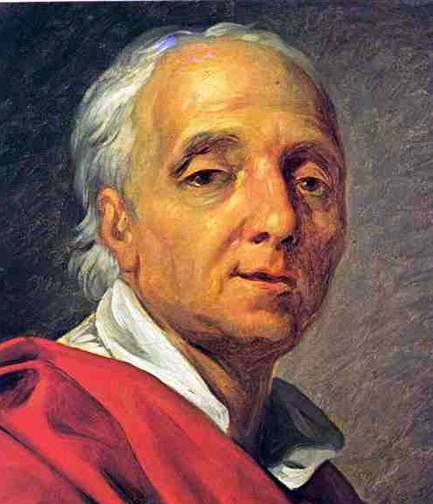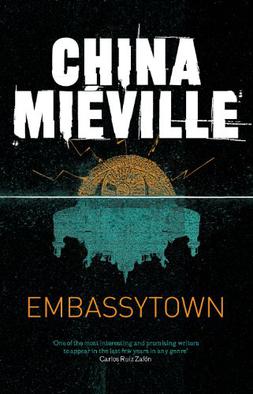A few moments with Pierce Gradone
Our first concert of 2018 is already almost here! On Friday 12 January we perform Elliott Carter’s legendary Double Concerto for harpsichord and piano at LSO St Luke’s, with Riot members Goska Isphording and Adam Swayne in the challenging solo roles.
This will not be the only highlight of the evening, however: the concert is completed with works by two younger American composers, Molly Joyce and Pierce Gradone. Over the Christmas holidays Tim Rutherford-Johnson spoke to Pierce about his To Paint Their Madness, which will receive its UK premiere, and his work in general.

Tim Rutherford-Johnson: How did you start composing? Was there a particular moment, piece or person that inspired you to begin writing music?
:format(jpeg):mode_rgb():quality(90)/discogs-images/R-9341666-1478977916-5304.png.jpg) Pierce Gradone: I started music as a bassist, mostly playing in church and in bluegrass and rock bands in the rural Appalachia region in the US. My composing, or at least some version of it, began when I was around nine years old. I heard Elton John’s ‘Benny and the Jets‘ on the radio, and since I had no money to buy a record, I tried to recreate it on my family’s upright piano. Having figured the song out, I began to realize that I could manipulate the chords and rhythms to my liking, thus beginning a brief tenure writing pop tunes at the piano. As I grew older, I began to listen to more and more classical music, but it was mostly limited to that of the eighteenth and nineteenth centuries. This changed when I was about 18. I spotted an album with an intriguing cover and a name I’d only vaguely heard before: Béla Bartók. It was Edith Farnadi and Hermann Scherchen’s recording of the Second Piano Concerto, and I’ll never forget the moment I heard that opening movement, as two things occurred to me: first, I was ecstatic to discover that music like this existed at all; second, I knew that I wanted to be a part of it. That’s when I began to seriously explore contemporary music and composition.
Pierce Gradone: I started music as a bassist, mostly playing in church and in bluegrass and rock bands in the rural Appalachia region in the US. My composing, or at least some version of it, began when I was around nine years old. I heard Elton John’s ‘Benny and the Jets‘ on the radio, and since I had no money to buy a record, I tried to recreate it on my family’s upright piano. Having figured the song out, I began to realize that I could manipulate the chords and rhythms to my liking, thus beginning a brief tenure writing pop tunes at the piano. As I grew older, I began to listen to more and more classical music, but it was mostly limited to that of the eighteenth and nineteenth centuries. This changed when I was about 18. I spotted an album with an intriguing cover and a name I’d only vaguely heard before: Béla Bartók. It was Edith Farnadi and Hermann Scherchen’s recording of the Second Piano Concerto, and I’ll never forget the moment I heard that opening movement, as two things occurred to me: first, I was ecstatic to discover that music like this existed at all; second, I knew that I wanted to be a part of it. That’s when I began to seriously explore contemporary music and composition.TR-J: What most recently has made a big impact on you?
PG: At a recent festival, I was introduced to the music of Hanna Eimermacher, a composer living and working in Berlin. Her works are intensely theatrical and ritualistic, but somehow manage to marry a striking sense of mise-en-scène with an equally compelling sound world. For me, her music reaffirmed the importance of performance and performing bodies, especially in a musical economy so heavily weighted toward creating the perfect aural document. I would particularly recommend Luftpost and In Vivo.
TR-J: How did To Paint Their Madness come about? And what surprised you most when you were composing it?
 PG: To Paint Their Madness was commissioned by the Fromm Foundation at Harvard University for Ensemble Dal Niente, a group I had worked with in the past, and whose members had become colleagues and friends. In short, I wanted the piece to be about the people playing it, so I decided to thematize the experience of performance in the piece itself. The title is taken from a passage of Denis Diderot’s Le Paradoxe sur la comedien, in which he argues that the greatest actors feel no true emotion on the stage, but instead create a reproducible copy. Thus, I thematize this sense of artifice through musical pantomime, in which players looks like they should be creating sound, but are in fact making none whatsoever, creating a kind of paradox within the performance, These moments recur throughout the piece, but culminate in the final measures, where the entire ensemble has taken to pantomiming musical gestures, but creating only a shadow of sound.
PG: To Paint Their Madness was commissioned by the Fromm Foundation at Harvard University for Ensemble Dal Niente, a group I had worked with in the past, and whose members had become colleagues and friends. In short, I wanted the piece to be about the people playing it, so I decided to thematize the experience of performance in the piece itself. The title is taken from a passage of Denis Diderot’s Le Paradoxe sur la comedien, in which he argues that the greatest actors feel no true emotion on the stage, but instead create a reproducible copy. Thus, I thematize this sense of artifice through musical pantomime, in which players looks like they should be creating sound, but are in fact making none whatsoever, creating a kind of paradox within the performance, These moments recur throughout the piece, but culminate in the final measures, where the entire ensemble has taken to pantomiming musical gestures, but creating only a shadow of sound.I think I was most surprised by how quickly I was able to write it – about one month!
TR-J: What is your composing routine like? Do you have a dedicated space and/or particular time of day to write, for example?
PG: My routine often varies, with the one constant being coffee and interruptions to walk my dog. I usually sketch on paper or by recording myself playing the piano or bass, and vocalizing figures and sounds that don’t translate well to traditional notation. I then do a kind of rough analysis of my material, trying to find new connections between seemingly disparate ideas. After that, I usually compose and engrave at the same time. Since my composing process involves a lot of revision, I find that I waste less paper and time by simply working directly into Finale and avoiding the playback button at all costs. I often have to get started in the morning, and ideally work for about 6-8 hours when I’m not teaching. I often work in my home office, with my beagle-basset hound, Marlon, sitting beside me and providing a nice accompaniment of howling at passing police sirens. What I like about the space is the sense of organization and purpose that comes with sitting at a desk to work, especially if it’s a nice day and the windows are open. Some composers may hate this, but I love being surrounded by the sounds of an urban environment (Chicago, where I live), so much so that I’ve actually created harmonies in my pieces based on a pitch I happened to hear outside.
TR-J: What’s coming up next for you?
PG: I’m currently writing a concerto for trombone and ensemble for my dear friend Steve Parker (based in Texas) and Ensemble Dal Niente. Farther on the horizon are pieces for saxophone/electronics, orchestra, and viola, flute and harp trio.
TR-J: Finally, if you could choose anything, what would be your dream line-up of instruments and/or voices to write for? And where would you like the premiere of this fantasy piece to take place?
 PG: My dream project would be an operatic adaptation of China Mieville’s Embassytown, a fantastic novel that deals with linguistics, colonialism, and the nature of truth. A unique quality of several characters in Mieville’s novel would require that some parts be sung by two singers simultaneously, creating a really fascinating musical premise. I imagine it would be for chamber orchestra, with a much larger cast of singers and some electronic components as well. It’d be premiered at any opera house willing to spend a fortune on costumes!
PG: My dream project would be an operatic adaptation of China Mieville’s Embassytown, a fantastic novel that deals with linguistics, colonialism, and the nature of truth. A unique quality of several characters in Mieville’s novel would require that some parts be sung by two singers simultaneously, creating a really fascinating musical premise. I imagine it would be for chamber orchestra, with a much larger cast of singers and some electronic components as well. It’d be premiered at any opera house willing to spend a fortune on costumes!TR-J: Sounds fantastic! Let’s hope we have a chance to see it happen one day … Thanks Pierce, and we look forward to playing To Paint Their Madness later this week.

